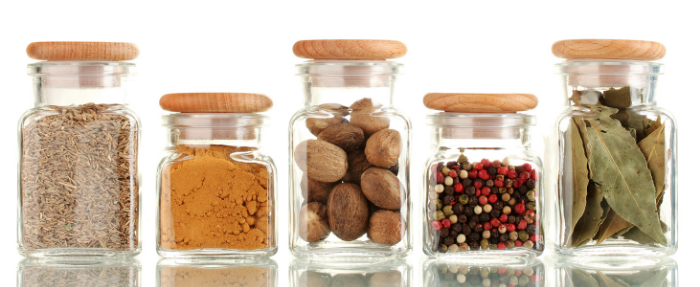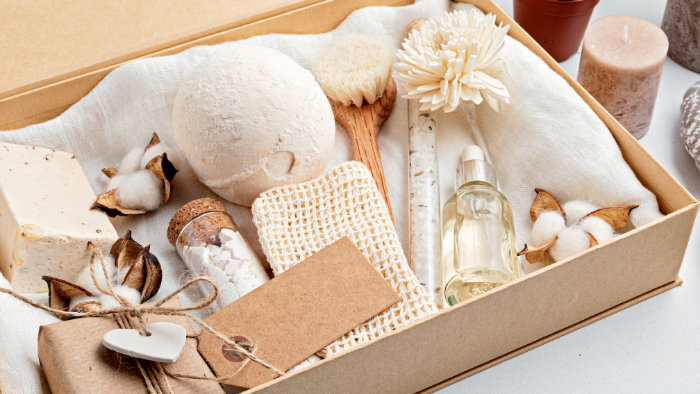Green has become the way to go in today’s packaging industry due to variables like consumer demand, sustainability, and the added bonus of helping out the environment. Traditional packaging options like plastic, paper, and cardboard have dwindled as more industries have become aware of the harmful effects they have on the global environment. While all of these traditional options have their own effect on the environment at large, consumer awareness around the use of plastic packaging has forced the global market to pivot to sustainable packaging options.
The Dangers of Plastic Packaging
We’re seeing a decrease in plastic packaging because while it is lower in cost, plastic degrades over time and can affect the quality of your products. Some plastics can contain high levels of BPA which is a harmful industrial chemical that can lead to negative health effects in infants and children. The larger environmental and health impact of using plastic on our planet has also been shown to increase in microplastics being found in humans and wildlife. Industries that use plastic packaging such as home and garden, healthcare, and food or beverages have begun to pivot their products to incorporate glass packaging because of its sustainability and recyclability.
Today we’re going to discuss the types of environmentally-friendly packaging and how switching to sustainable packaging can benefit the environment and your business over time.
Why Choose Glass Containers?
Glass has been a popular packaging item for the past 100 years, but it wasn’t until awareness was brought to the negative effects of traditional packaging methods that glass was recognized as a positive sustainable alternative. As a fully recyclable material, glass has the compound benefit of being great for the environment by saving on natural resources and can contribute to helping improve people’s well-being and health conditions. Unlike any other packaging material glass has an unlimited lifespan with no loss of quality when recycled, because it is made from natural materials. Regardless of your industry, glass containers are also extremely versatile and are commonly used in the food, home fragrance, bath and body, and cosmetic industries.
Glass is nonporous and preserves product quality during the product’s lifespan such as sensitive creams or expensive drugs that need protection from outside elements that can reduce the quality. Its nonporous and impermeable benefits mean there are no blending or interactions between the glass packaging and the final product so the quality of the product won’t be impacted by the use of glass packaging. Unlike traditional packaging, glass can have higher shipping costs because of the weight, but studies have shown consumers are willing to pay more for sustainable packaging options. The most recent reports show that 74% of consumers are willing to pay more for products with sustainable packaging because they are willing to pay to protect the planet.

New Sustainable Packaging Trends
As we’ve previously mentioned whether it’s plastic, cardboard, or paper, we’re seeing a big shift in how some of the world’s most popular industries are implementing environmentally-friendly packaging into their business models. Whether you’ve noticed your favorite coffee shop is now giving paper straws or you’ve been to a restaurant that features bamboo silverware, switching to eco-friendly packaging is more than just a passing fad, it’s a chance to reduce, reuse, and create recyclable options for your business that the environment and your customers will be happy about.
If you’re scratching your head and wondering where you have experienced or been exposed to a sustainable packaging design or product, we’re going to break down a few solutions that popular industries have begun to adopt.
| Industry | Packaging Type | Sustainable Alternatives |
| Food and Beverage Storage | Plastic | Stainless Steel |
| Wine and Spirits | Plastic | Glass |
| Home Goods | Teflon | Platinum Silicone |
| Wrapping Paper | Laminated Plastic | Beeswax Cloth, Glass |
| Fashion and Clothing | Nylon, Polyester, Raylon, Acrylic | Organic Cotton, Wool, Hemp |
| Personal Care | Microbeads, Synthetic polymers, Plastic | Glass |
| Home Goods | Plastic | Bamboo |
These are just a few examples of how common industries are finding sustainable packaging solutions that decrease their carbon footprint while saving costs on packaging. There continues to be daily research to help innovate the use of recyclable packing materials which has led to an expansion in the packaging options businesses can consider for their specialized industries.
Other Sustainable Packaging Materials to Consider
Whether it’s bamboo, steel, or glass, there are several ecological packaging options your business can use to become a more environmentally-friendly packaging company. However, using sustainable product packaging isn’t the only way to become more environmentally friendly, you can streamline this process by also using sustainable shipping packaging when transporting your goods. Keeping your products safe during transport is crucial but so is the environmental impact of your packaging. Green packaging or sustainable packaging typically includes biodegradable and recyclable materials instead of plastic or styrofoam.
There are new packaging options such as:
- Biodegradable packing peanuts
- Corrugated bubble wrap
- Air pillows made of recycled materials
- Mushroom based packaging
- Refurbished products
- Cornstarch packaging
- Seaweed packaging
While green packaging solutions can take several different forms based on the type of product you need to ship and the industry you are in, the overall benefits are worth the investment. Using sustainable shipping packaging can help diminish reliance on fossil fuels, increase the use of recycled products, and reduce the use of natural resources.
Sustainable Packaging is Not an All-Or-Nothing Game
Sustainable packaging is an investment that your business should make because there are numerous options of eco-friendly alternatives instead of the traditional packaging materials.
Whether you decide to use or several of these environmental packaging options you are making a significant step towards becoming an environmentally conscious business that your customers and the environment will benefit from. Big and small companies have begun to adopt eco-friendly product packaging that has been well received because of their commitment to sustainability that extends beyond the standard “recycling” marketing that was popular in decades past. Research your best options and start getting sustainable today with Glass Now which provides several dynamic glass options in a variety of sizes and shapes to service your unique product.


